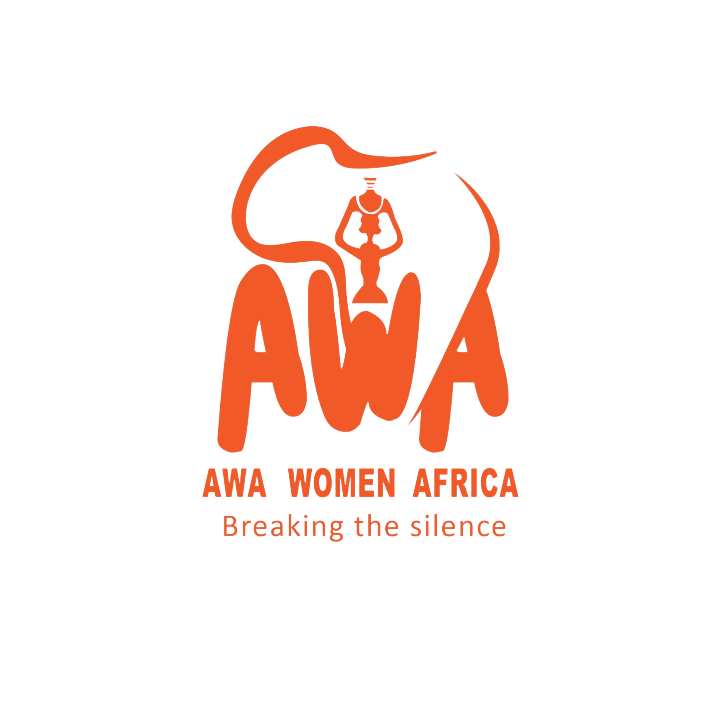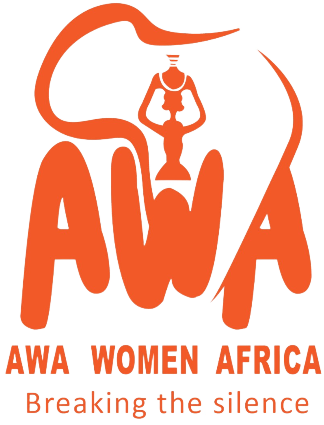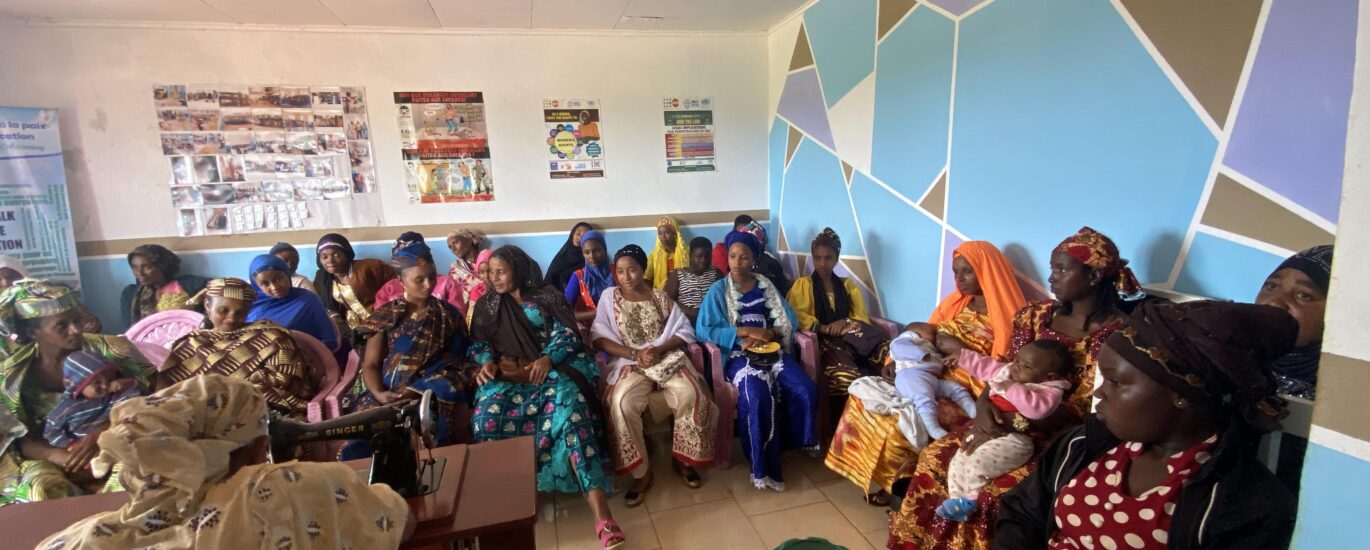More than 40 women and girls were empowered with vocational training skills and sensitizations on human rights, Gender-Based Violence (GBV) prevention, and menstrual hygiene health on September 3rd, 2022 in Koutaba, Noun Division, Cameroon.
Facilitators had a series of talks on GBV prevention, menstruation, human rights, and training on tailoring and computer science, which the participants will continue for the next three months before their graduation. According to one of the facilitators, this session aimed to equip women and girls from every background with knowledge of rights and health and empower them with vocational training skills to facilitate self-employment.
Brendaline Bongsisi, an IDP, talked to the organizers of the session, “It was a very useful session and it’ll go a very long way to help me. I have learned that I and my children have rights. I have learned measures to prevent all forms of GBV and I am happy to take part in the training on tailoring. As I return home, I’ll educate my friends and meeting mates on all I learned so that it can help them too. I’ll tell them that they shouldn’t be ashamed to talk about these issues openly with their children because we parents are their first teachers, as I learned today. If we neglect them, they’ll fall into troubles that they would have been able to avoid.”
The session was very interactive as participants who heard some of the talks for the first time asked a lot of questions and were interested to learn more. Suila Ummu, who attended the session, expressed how grateful she is for learning many things, “Thank you to those who put up this event. I have learned how to take care of myself when I am seeing my menses. I also learned ways in which I can avoid any form of GBV, especially Rape and sexual harassment which are common in my community.”
“I learned today that I can also educate my children on their rights and menstrual health without waiting for others to do it for me. Now I understand how important it is to talk about it to them before they start making mistakes”, Violet Berinyuy.
The session was organized by Awa Women Africa (AWA) in partnership with NGOs, Tomorrow Children (TC), Charifa Foundation (CF), Flowers Touch Zimbabwe, and ALMAH Africa Ghana.
Gina Abena Amedeka from ALMAH Africa in Ghana had a virtual sensitization on GBV prevention. She engaged participants and shared her experience as a GBV Advocate in Ghana, where 31% of women experience at least one form of GBV (Domestic Violence Victim Support Unit, Ghana). She discussed ways to stop GBV in communities: awareness, education, and prevention.
Kudzai Mhungwa, Founder of Flowers Touch in Zimbabwe, also engaged participants virtually on how they can take care of themselves during menstruation. He talked about Flowers Touch and how reusable pads fabricated by his team, have helped the women and girls in his community where period poverty is an issue.
Participants were also introduced to their two-month training on tailoring and computer science, where they’ll gain the necessary skills to secure self-employment and take care of their basic needs.
Cameroon continues to be affected by three complex humanitarian crises: the Lake Chad basin conflict, the North-West and South-West crises, and the Central African Republic (CAR) refugee crisis. In 2022, 3.9 million people need humanitarian assistance and protection (United Nations Office for the Coordination of Humanitarian Affairs- UNOCHA).
As of 31 December 2021, population movement was affecting almost 2 million people within Cameroon, either as internally displaced persons (IDPs), refugees, or returnees. Cameroon was hosting over 933,000 IDPs and about 518,000 returnees, mainly in the North-West, South-West and Far North regions (UNOCHA).


